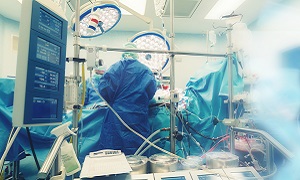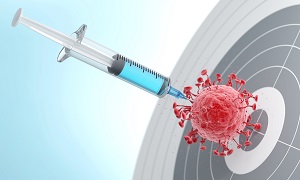Kidney Cancer
Symptoms
Kidney cancer generally doesn’t show any signs or symptoms in the early stages. In time, there might be certain signs and symptoms which can include the following:
- Blood in your urine
- Pain in your back or side
- Loss of appetite
- Unexplained weight loss
- Tiredness
- Fever
If you keep experiencing any persistent signs or symptoms that seem worrisome, you should consider making an appointment with your doctor.
Causes
In the majority of cases, doctors are not sure, what exactly the cause of kidney cancer is. However, they do know that kidney cancer begins when certain cells in the kidney develop certain changes or mutations in their DNA. A cell’s DNA contains all the instructions on what to do. The changes instruct the cells to grow as well as divide rapidly. Thus, these accumulating abnormal cells form a tumor which may extend beyond the kidney. Some cells can also break off and spread to other parts of the body.
Certain factors are known to increase the risk of kidney cancer. They include the following:
Older age- With age, your risk of kidney cancer also increases.
Smoking- Smokers have a greater risk of kidney cancer than those who don’t smoke. If you quit smoking, the risk of kidney cancer decreases.
High blood pressure (hypertension)- High blood pressure also increases your risk of kidney cancer.
Treatment for kidney failure- People who receive long-term dialysis to treat chronic kidney failure are also at risk of developing kidney cancer.
Obesity- Obese people have a high risk of kidney cancer as well, as compared to people having a healthy weight.
Family history of kidney cancer- If family members have had the disease, then the risk of kidney cancer gets higher.
Certain inherited syndromes- People who are born with certain inherited syndromes can also have a higher risk of kidney cancer. Some of these syndromes include von Hippel-Lindau disease, Birt-Hogg-Dube syndrome, hereditary papillary renal cell carcinoma, tuberous sclerosis complex, or familial renal cancer.
Diagnosis
There are multiple tests and procedures used in the diagnosis of kidney cancer. They include:
Blood and Urine tests
Imaging tests
Kidney biopsy
A kidney biopsy involves your doctor removing a small sample of cells from a suspicious area of your kidney. The sample is next tested in a lab to look for any signs of cancer. This procedure is not always needed.
Once your doctor is able to identify the kidney lesion that might be kidney cancer, the next step for him/her is to determine the extent or stage of cancer. For this, additional CT scans or other imaging tests might be required, if your doctor feels appropriate.
The stages of kidney cancer are indicated from I to IV. The lowest stages indicating the cancer is confined to the kidney, and at stage IV, the cancer is considered advanced and might have spread to other areas of the body.
Treatment
Treatment options generally depend on various factors, which include overall health, type, and stage of kidney cancer, personal preferences, etc.
Surgery
Embolization
Cryoablation
Chemotherapy

Radiation Therapy
Immunotherapy
Targeted therapy
Prevention
To reduce your risk of kidney cancer, it is important to take steps to improve your overall health. If you smoke, try to quit. Work to maintain a healthy weight as well, if you are obese or overweight.
If you are having high blood pressure, it is important to keep it in control.







